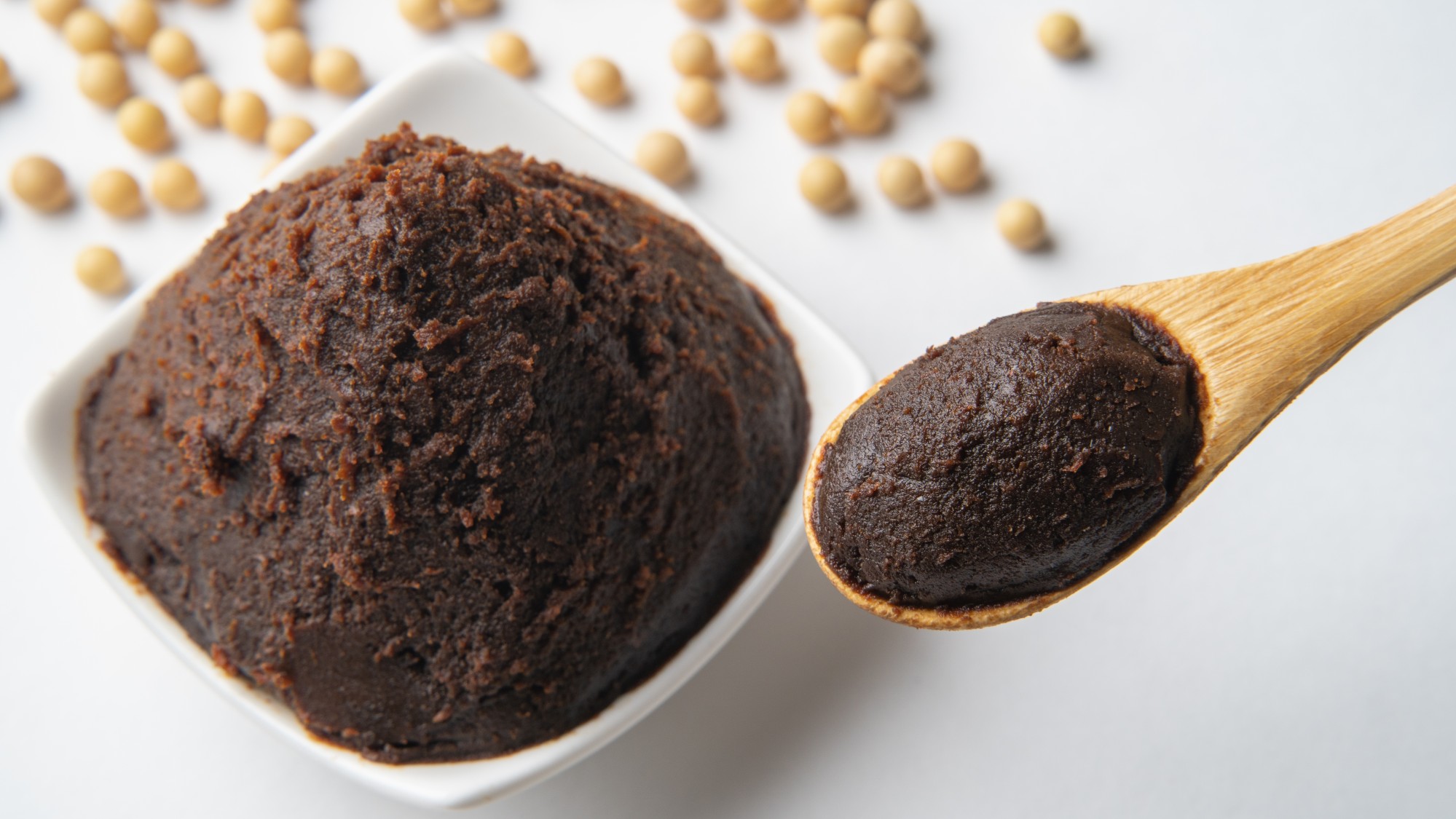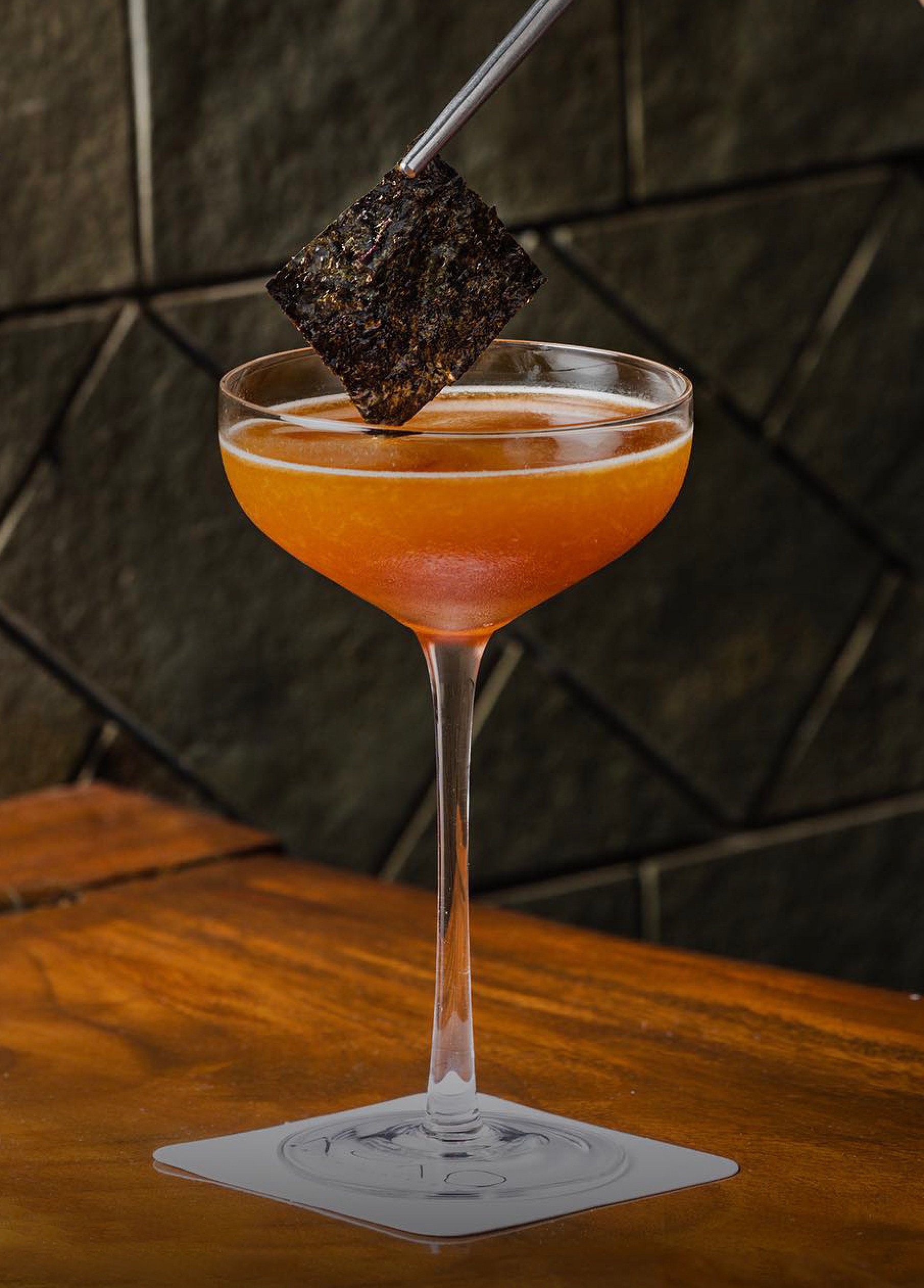
Why India is mad for miso, the Japanese fermented paste cooks are adding to curries and cocktails, dal and desserts
- Miso has been enjoyed in East Asia for centuries, and now the fermented paste is taking India by storm, even being put into cocktails and desserts
- The condiment is striking a chord in a nation where foodies are increasingly looking for ingredients that are packed with health-giving properties
Home cook Niyati Vyas is a confessed fan of miso paste, the savoury, umami packed Japanese condiment.
As well as using miso in meals from other Asian cuisines, the New Delhi-based teacher amps up the flavour of her Indian dishes with the condiment, which is produced by fermenting soybeans with salt and kōji – the fungus Aspergillus oryzae.
“My family loves my miso-infused baingan bharta (aubergine curry), which I make every weekend. I recently made khichdi (lentil-rice porridge) with miso that elevated its flavour to the next level.
“I also incorporate miso in my dosa and have it with podi (spicy lentil-chilli powder).”

Miso is finding increasingly novel applications in Indian kitchens, where it is being incorporated into various cuisines by experimental home cooks and chefs.
They are reimagining dishes, drinks and even desserts with the traditional Japanese condiment as a star ingredient.
The Asian Facebook bakers cooking up sweet treats with a side of activism
Introduced to Japan from China 1,300 years ago by Buddhist priests and adopted by the samurai as a part of their diet, miso is popular in China, Korea, Indonesia and, above all, Japan.
There is a wide range of misos available; popular ones include komemiso (rice and soybeans), mugimiso (barley and soybeans), mamemiso (only soybeans) and namemiso (mixed with other foods like seaweed, fish or nuts).
The basic process for making miso involves allowing the Aspergillus oryzae fungus to develop on steamed grain, which is then mixed with ground soybeans and mixed in a saline solution.
The salt kills off the fungus, but the enzymes it previously created add complex layers of taste to the bean-grain base.

New Delhi-based Bani Nanda of Miam Patisserie, a confessed miso advocate, has launched an array of desserts incorporating miso. In Mumbai, popular restaurant Sequel makes a brown butter cookie featuring miso, Kashmiri walnut and coconut sugar.
Chef Niyati Rao of Mumbai’s KMC restaurant says her banana bread with a tahini caramel pairing served with a miso ice cream has been well received by patrons.
Also popular is the Miso Caliente cocktail at Mumbai’s Pan-Asian restobar Koko, an umami-rich blend of Scotch infused with red miso paste, honey and nori (seaweed).
A desire for healthy, immunity-boosting food following the Covid-19 pandemic has been a factor in the mania for miso. Chefs are using healthier, gut-friendly ingredients. Nutritionists emphasise the connection between the gut microbiome and mental health, immune response and weight loss.

“People are resetting their lifestyles to cook health-forward dishes [as well as consume them] when eating out,” says Ankur Gulati, executive chef of The Claridges hotel in New Delhi.
“Gut-friendly ingredients are increasingly popular. Miso brims with protein, vitamins and minerals and is also known for its probiotic properties, which has led to its surging popularity,” Gulati says.
Among The Claridges’ miso-forward dishes are desserts such as miso crème caramel, miso ice cream, miso caramel ice cream, miso-infused chocolates and miso crème brûlée, all served in the hotel’s new restaurant Lutyens’ Delhi. Also popular are miso lattes, miso smoothies, miso-based cocktails and miso-flavoured tea.
According to Deepak Rana, executive chef at The Roseate in New Delhi, the growing interest in India in plant-based diets is making miso a popular ingredient.

“Miso is great for adding depth of flavour to food. It can be used to enhance the umami taste in vegan recipes,” Rana says.
The chef says the hotel’s miso salad dressing is very popular, as well as its miso butter. “Our miso glazed salmon and sea bass served in a miso glaze with a side of pickled vegetables, rice cake and a miso apple sauce is a hit at sit-down dinners,” he adds.
Apart from miso soup, miso ramen and miso udon, miso cocktails are also in the works for The Roseate’s new farm-to-fork restaurant that will feature seasonal fruit and herbs. Also at the research and development stage are desserts such as miso caramel ice cream and miso chocolate truffles.
At the Andaz Delhi hotel, executive sous chef Souvick Mutsuddi is amplifying the flavour of his Indian and Mediterranean dishes with miso paste, which he says his guests “can’t get enough of”.

Creamy miso-flavoured hummus, a piquant miso-mint chutney that he serves with his kebab platter, and a miso-smeared shawarma roll for Sunday brunch at its Annamaya all-day dining restaurant have all been hits.
At Rick’s Bar in Delhi’s Taj Mahal Hotel, a cocktail called Umami Ugarte featuring tomatoes, strawberries and dark miso has become hugely popular. The drink is named after Signor Ugarte, Peter Lorre’s shady character in the Hollywood film Casablanca who sells fake passports.
Giving miso his own twist is fermenter Prachet Sancheti in Goa, southern India, who has developed a product range for his Brown Koji Boy brand encompassing miso made from ingredients including cashews and chickpeas.
The twenty-something entrepreneur has developed a range of misos, tamari and shoyu that is being stocked and used in restaurants across the country.

Food anthropologists say some of the enthusiasm in India for miso stems from celebrities who are embracing the goodness of fermented soy products, particularly miso and tempeh, a firm and nutty soybean cake.
Both ingredients have become a popular choice among fitness-conscious Bollywood stars because of their high protein and micronutrient content. This has rubbed off on popular culture.
“Both tempeh and miso are powerhouses of probiotics and postbiotics, making them vital additions to a nutritious diet. These fermented soy products are not only tasty, but also add an international spin to celebrity kitchens. This accounts for miso’s phenomenal popularity across the subcontinent,” says a Mumbai-based celebrity nutritionist.

